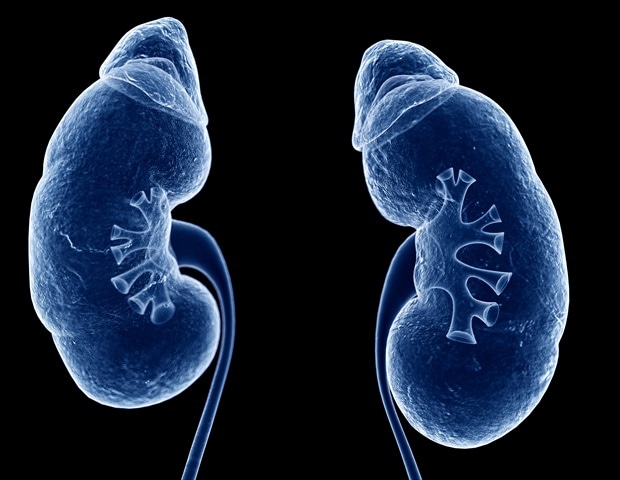Humboldt Research Fellow Dr. Maria Rita Ortega Vega from the Universidade Federal do Rio Grande do Sul in Brazil is a guest at the Faculty of Chemistry and Food Chemistry at the TU Dresden. Here she will work together with her host Prof. Stefan Kaskel on the development of novel electrochemical sensors for saliva detection of kidney diseases.
The kidneys are vital organs that clean the blood and affect many bodily functions. Many kidney diseases initially show no pain or symptoms. Often, proteins or only microscopically visible traces of blood in the urine indicate damage to the kidney only through a random examination.
The Brazilian materials scientist Dr. Maria Rita Ortega Vega would like to develop a completely new method for the early detection of kidney diseases at the Technical University of Dresden. To this end, she is working with host Prof. Stefan Kaskel and his team as part of a Humboldt research stay. Kaskel is Professor of Inorganic Chemistry and researches in particular porous materials, eg for the energy transition or for environmental technologies. dr However, Ortega Vega would like to use these materials in their project “Nanostructured electrochemical sensor based on transition metals for the detection of urea in saliva for the diagnosis of kidney failure” to electrochemically detect and quantify urea in saliva.
The presence and amount of urea in the saliva can be an indicator of kidney problems. With such a sensor, patients and doctors can get reliable results quickly and without blood tests. For patients who are already in the chronic stage of the disease, this technology can help evaluate the performance of the dialysis process. We expect to jointly develop a specific and sensitive material for this application.”
Maria Rita Ortega Vega, Humboldt Research Fellow, Federal University of Rio Grande do Sul in Brazil
“I am very pleased that with Ms. Ortega we have been able to recruit a talented young scientist who fits perfectly into our team for the TU Dresden. Your innovative research on new topics in biosensor technology will certainly benefit significantly from the excellent research environment in Dresden,” says Prof. Kaskel.
As Henriette Heart Scout of the Alexander von Humboldt Foundation, he has the opportunity to identify three excellent and highly sought-after young scientists from abroad, to propose them for a Humboldt research fellowship and to bring them to TU Dresden. Maria Rita Ortega Vega is the first colleague that Kaskel was able to recruit for his team in this way.
“I liked the level of work of the team: there are many promising developments here with great opportunities for technology transfer and application. This is very important to me: doing science that can have an impact on society. I see science as a democratic project.’ ie the study of systems and materials that are scalable so that they can reach people through various applications and that can make life easier to “materialize” knowledge is a great motivation. I liked it also the infrastructure, which is very different from that in Brazil. TUD has other technologies and devices that I’m not used to, and I’m looking forward to getting to know them,” says Maria Rita about her motivation for accepting Stefan Kaskel’s invitation to Dresden.
Source:
Technical University Dresden

